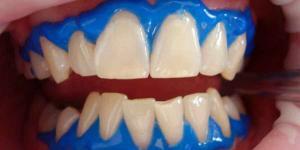Dental implants are artificial substitutes for the root of a tooth. The result of a dental implant often resembles the original root and works the same way as a typical tooth.
When is a Dental Implant Required?
Implants become necessary when:
There’s Loss of a Tooth
The loss of one’s teeth can occur due to different reasons, including a permanent cavity, periodontal disease, tooth destruction, or an unsuccessful root canal procedure.
If the teeth loss is not handled instantly, it causes gaps that may be unsightly. It also causes negative effects that you are unaware of until you visit the dental clinic.
Any teeth located next to a gap often tend to shift towards the gap. When this happens, it results in instability of the adjacent teeth, and soon your bite will become misaligned.
When gaps in your teeth, there won’t be enough stability for the jaw. This causes the jawbone to shrink through a process referred to as “resorption.” When a person loses their jaw volume, it becomes difficult to gain it back, even after bone grafting has been done.
After losing one or several of your teeth, try to replace them to avoid losing the jaw’s firmness. Using a dental implant can help support the teeth. One advantage of dental implants is that they do not rely on the adjacent teeth for support.
In this case, the teeth are supported by dental implants, meaning they cannot be easily removed. You can chew comfortably using these implants.
The implant transmits any force exerted during chewing to the underlying jawbone, preserving the bone volume within its area.
Irreparable Tooth Decay
One of the reasons people may need an implant is when they have irreversible tooth decay. The initial sign of this condition is lingering pain that occurs without any provocation. You don’t have to chew or drink before the pain comes. You might be sitting around minding your own business, and then the toothache comes, and it does not let up in any way.
This is one of the definite signs that you need to get the tooth extracted, or replaced by an implant. Consider dental Implant Brooklyn services for best treatment.
Swollen Gum Tissue
Another sign that indicates the need for a dental implant is swelling of the gum tissue surrounding the affected tooth. The tooth in question needs to be extracted, and an implant placed immediately. This process is called “immediate implant placement.” The dentist may decide to place a temporary crown so that you don’t walk around with a gap at all.
Bone Loss
At times, a dental implant may be used, yet considerable bone loss has already occurred. When this happens, the dentist plans for the delayed installation of an implant. A considerable amount of bone graft material will be placed in the tooth’s socket to rebuild its volume before an implant is in place.
Bone Fracture
If the tooth has been damaged or is fractured due to sudden impact, then there is likelihood that the dentist will remove it. Here, a sudden implant might need to be fixed.
Gum Disease
The first indication of gum disease is a receding gum line. This occurs when the bone volume is gradually lost, causing mobility of the tooth.
One major trigger of tooth loss and gum disease is the refined sugar and other acidic food.
Can Dental Implants Be Used as a Permanent Solution?
Dental implants may work as a long term solution to missing teeth and can work just like your natural teeth.
However, the longevity of the placement depends on a variety of factors – regular cleaning of the implant and making sure you attend the appointments has a profound effect on how the treatment works.
When well maintained, the implants can last for several years.
If you neglect your implants, it develops a bacterial coating that can grow on the surface. This can turn into periodontal disease, which in turn leads to bleeding.
Is an Implant Necessary if a Missing Tooth Doesn’t Bother Me?
When your tooth falls out, the adjacent teeth will need to adapt to cope with the stress and pressure. While you might not experience any discomfort, your teeth become vulnerable to cracking and infection. Many people with tooth loss usually adjust their bite so that they only chew from one side of the mouth, neglecting the other side.
Like the rest of the body, when you neglect one side of the jaw, the other side becomes fragile. Talk to a “dental implant Brooklyn” today to get the help you need.



